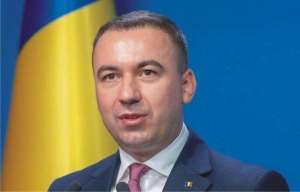According to a document containing the strategic roadmap for the period 2023-2027 of the European Investment Bank, the banking institution does not seem willing to finance the construction of SMR plants, due to the low profitability, according to an article published by Euractiv.fr, which cites information presented by CarbonPulse.
The cited source shows that in the respective document, the EIB states that it could only financially support research in the sector of small modular reactors, but not the actual construction of the respective plants, similar to the one that the authorities in our country want to build in Doiceşti, in collaboration with the Americans at NuScale.
Several industry observers told Euractiv that support for nuclear power in the document was no more significant, judging by the terms used, than that in the current roadmap (2021-2025), which already indicates support for research and development in the field of nuclear fission. In other words, there is no financing for the construction of large or small nuclear reactors on the agenda of the EIB, although even Ursula von der Leyen, the president of the European Commission, has spoken out for SMRs since mid-March.
But from the perspective of the EIB, the construction of new reactors faces a crucial problem, that of profitability. The EIB's statutes stipulate that any financing of a nuclear reactor manufacturer must be systematically subject to a guarantee or financial soundness of that manufacturer. And unlike a traditional bank, interest and amortization services related to financing must invariably be covered by operating profit. If the solvency condition is met more easily when the applicant nuclear company is a state-owned company, such as EDF in France or Nuclearelectrica in our country, regarding private companies that want to develop SMR is a problem, says the quoted source.
Basically, the French journalists claim that, from the point of view of profitability, the sector suffers from a loss of skills for the construction of large and small reactors, and in the case of the newest reactors built or under construction, costs and deadlines are systematically exceeded. As a result, the confidence of financiers is seriously tested, even though experts, economists and academics, to whom Euractiv turned in April, believe that the series effect (i.e. the serial construction of reactors) can reduce the cost of each reactor by a percentage between 20% to 30%, which would attract an increase in profitability.
Regarding profitability, the cited source states that in mid-March, Thomas Ostros, the vice-president of the EIB, stated that financing the construction of nuclear reactors is too risky from a financial point of view.
However, the European Commission on 26 April 2024 validated a euro300 million state aid scheme in favor of Nuward, a French developer of small modular nuclear reactors, to ensure the "overall coherence" of its project.
The European Investment Bank will allocate by the end of next year 1,000 billion euros in projects related to ecology and energy, which will be implemented by 2030. However, the journalists of the quoted source found that in the last 24 years only one billion euros have have been allocated to nuclear energy and parallel activities such as research and development, nuclear safety, etc., given that the authorities estimate a tripling by 2050 of nuclear energy production capacities, both large reactors and SMRs.
But in order to be validated, the financing projects must also receive the approval of the member states. However, only 11 states out of the 27 of the European Union are members of the nuclear alliance, which represents a major obstacle to the approval of financing decisions by the EIB. The number of partisans of the SMRs could reach 12 states, if Italy, which has observer status of the respective alliance, would like to become a member of it, but the respective states would still be in the minority at the time of voting on the projects financed by the EIB.
We remind you that on April 17, the Ministry of Energy blocked, in the meeting of the General Meeting of Nuclearelectrica Shareholders, all items on the agenda related to the project of small modular reactors (SMR) from Doiceşti. The agenda items related to SMRs were not approved because the Ministry of Energy, the majority shareholder, abstained from voting. Later, the ministry issued a press release stating that the mini-reactor proposals will be discussed again at a later meeting and that there is a "need for a calibrated and integrated vision of the project".
At the beginning of May, Sebastian Burduja, the Minister of Energy, told the media that he is waiting for data on the "financial structure".
Sebastian Burduja stated: "I said that we need additional data related to the project of small modular reactors. It follows that Nuclearelectrica, at the level of the executive management, at the level of the board, will provide us with these additional data, at the level of the shareholder. I will move forward as soon as the company itself supports this project. First of all, the company, at the level of decision-making bodies, must approve the stages of this project. Including its financial structure. It cannot ask the majority shareholder, the Ministry of Energy, for something that it has not resolved at the level of the Administrative Council. It will solve it, it will cut it, and certainly we, the Ministry of Energy and the Romanian state, will support this future project for Romania and not only for Romania, but for the whole world".
Meanwhile, NuScale's American partners stated that the discussion about financing the Doicesti SMR was postponed after the June 9 elections, for political reasons.

















































